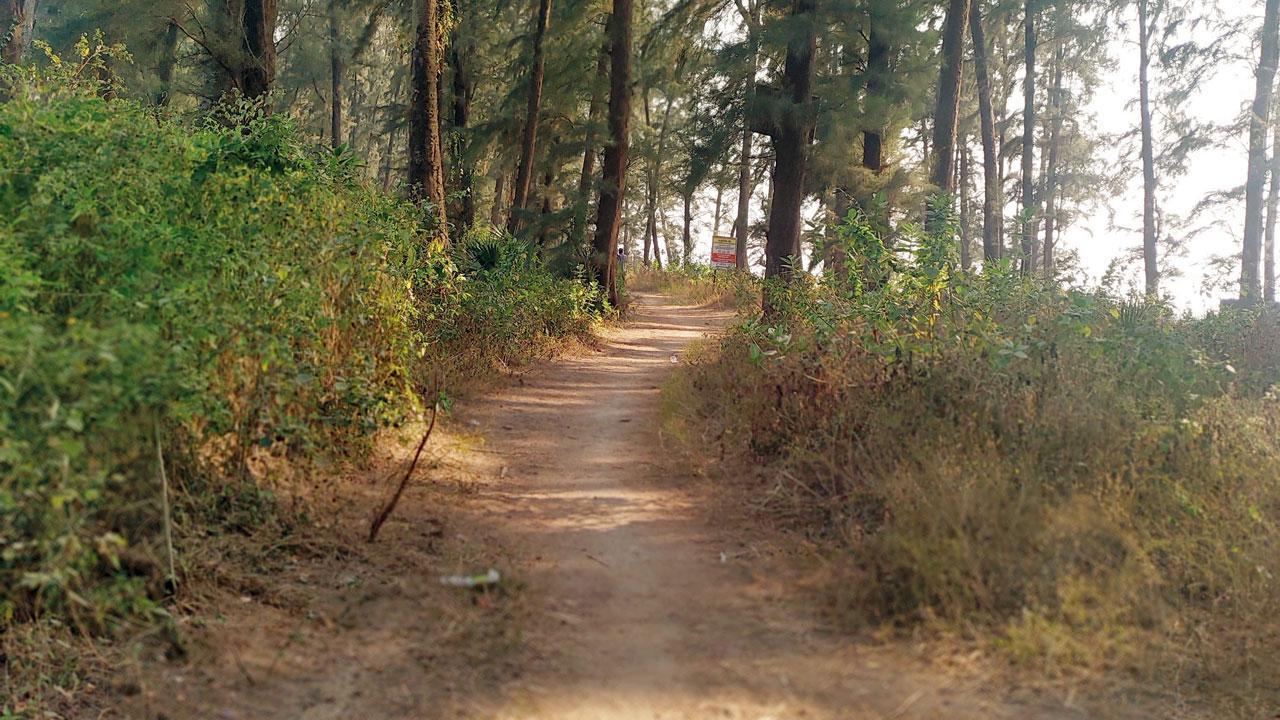Central directive, aimed at providing safe breeding ground to the amphibians, also talks of removal of already-planted casuarinas

Casuarinas are grown along beaches for a host of reasons, including curbing erosion, wind breaking and ornamental vegetation. But, the trees hamper nesting of thousands of turtles
AMID the forest department’s push to grow casuarina trees along the beaches across Maharashtra, the Centre has told it to desist from planting the exotic species along coastlines used by marine turtles for nesting. The state has also been told to remove the already-planted casuarina trees from such beaches.
The directive to states and UTs by the Union environment ministry comes as part of its National Marine Turtle Action Plan to provide safe breeding grounds to the amphibians.
Casuarinas are grown near the sea for an array of reasons, including beach establishment, erosion control, wind breaking, and coastal sand dune stabilisation. Additional Principal Chief Conservator of Forest Virendra Tiwari told mid-day, “We have received the National Marine Turtle Action Plan and we will follow the advisory mentioned. We will also be writing to the social forestry department and collectors to not plant casuarina trees along a few beaches.”
In Maharashtra, there are four turtle nesting sites in Raigad district, 13 in Ratnagiri and six nesting sites on beaches in Sindhudurg district where thousands of turtles lay eggs every year.
The Centre’s directive is aimed at rehabilitating degraded marine turtle habitats. It says, “Re-vegetate, where appropriate, frontal dunes at nesting beaches, with indigenous flora as far as possible, in order to provide visual barriers to coastal development and to restore appropriate beach temperature regimes.”
Other than asking states to remove casuarinas from the nesting beaches, the ministry has stressed the need for no plantation on sand dunes, removal of debris that impedes turtle nesting, recovery of degraded coral reefs, mangroves and seagrass.
The action plan appeals for conducting baseline studies to gather secondary information on marine turtle populations and their habitats. It calls for efforts for long-term monitoring of marine turtle populations.
“Identify migratory routes through the use of tagging, genetic studies and/or satellite tracking. Carry out studies on marine turtle population dynamics and survival rates. Promote the use of traditional ecological knowledge in research studies. Review periodically and evaluate research and monitoring activities,” says the action plan.
 Subscribe today by clicking the link and stay updated with the latest news!" Click here!
Subscribe today by clicking the link and stay updated with the latest news!" Click here!









